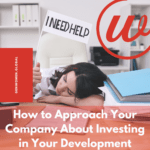The rise of returnships programmes since 2014 is starting to have a positive impact on businesses and the economy. At the moment we are only scratching the surface of the benefits that they can bring. Pioneered by investment banks, they are mainly bringing skilled women back into the workforce after a career break.
It really is long overdue that women that want to return to work, are being encouraged back to the work force. They should not be penalised for choosing family over career. However, despite the existence of returnships programmes, employers still discriminate against those with gaps in their CV. A 2013 study found that the success rate of applicants with career gaps was far below those without, even if the applicant was more qualified. This is why returnship programmes are necessary, and the positive impacts are numerous. Here are three key reasons that should make businesses want to jump onto the Returnship bandwagon.
1. An Improved Talent Pool
“Returner” was coined by the first female CEO at Pepsi Co, Brenda Barnes, who championed a returnship programme for women to re-enter the workforce in 2008. She believed women who had taken a career break to raise children made fantastic employees due to the transferable skills of leadership, multi-tasking and organisation. These talents are in dire need of nurturing. Many of these potential employees have all the skills required to succeed. A returnship programme can provide them with the additional training to get up to speed with new technology and professional developments. They may have missed out in their years away from work, but have absolutely gained a unique perspective from taking a career break. This isn’t work experience, more a bridge back to a more senior role.
Without a returnship programme many of these potential employees would never be on a company’s radar. Returnship programmes provide your business with a highly qualified candidate who is ready to make a positive impact. There are around 427,000 female professionals, including directors, engineers, scientists, researchers who are currently on a career break are looking to return to the workforce. It’s almost a bottomless pit of talent.
2. A “No Brainer” for a growing company
With a true returnship, it’s a no risk formula. There is no guarantee of employment after a returnship programme. So a business can trial a potentially experienced employee with no commitment. This is not something you get from a straightforward hiring process. Likewise the employee can test the water without long term commitment. In most cases employers end up with highly skilled and highly motivated new team members. What’s not to like? Employing those in the returners demographic will improve diversity in the workplace. This faces the challenge of gender equality head on and in a practical way that benefits employee and company. Greater diversity has a snowball effect.
Furthermore, if your company is seen to be diverse, the pool of applicants will improve. The result is that you’ll end up with a higher quality workforce. Having that kind of reputation is always good for business. Addressing your skills shortage by encouraging returners is a no brainer. An Ernst & Young study has found that the most productive people in the workforce are women working flexible hours – so it makes sense to employ more women and offer greater flexibility.
3. Economic Growth
The benefits of ‘Returnships’ can be huge, not just for the business, but for the economy in general. It has been estimated that returning professionals to work could lead to a £1.7bn increase in UK economic output, based on their extra earnings and increased spending power (PwC 2016). A lack of older women working, particularly in highly skilled roles, is costing the UK economy £50bn a year, according to a report from the think tank Radix in 2015. The UK government funded returnship programmes to the tune of £5 Million in 2018, but this only encompassed 5% of UK companies.
A survey undertaken in Ireland showed that almost two-thirds of employers said they see a boost in productivity when hiring returning mothers.
Returners are high calibre employees with a strong work ethic and loyalty. Getting them back to work will benefit business and the economy. But most of all it will realise the potential of thousands of women who have taken a career break. If you improve their confidence and update their skills, your business wins and so do they. Making returnships widespread routine programmes of business culture can have a profound effect on our society.
Check out current returnship programmes here.
If you are on a Career break and are looking for some support to return to work, then you might like to learn more about our Career Elevator programme.







